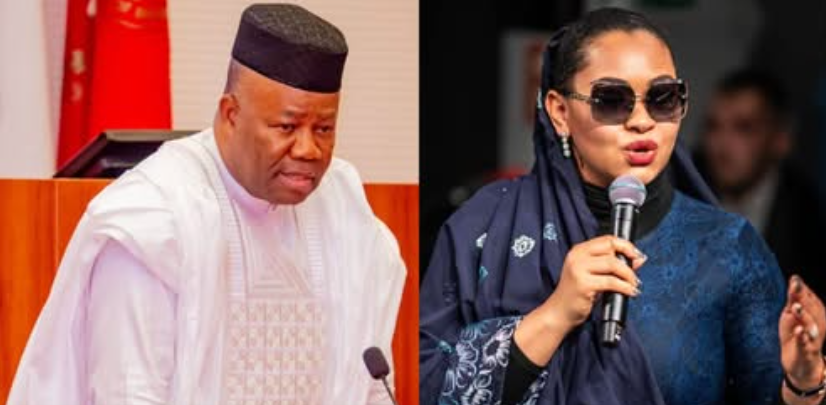Governor Agbu Kefas Poised to Defect to APC Amid Growing Wave of PDP Governors Switching Sides
Taraba State Governor Agbu Kefas appears set to become the latest Peoples Democratic Party (PDP) governor to defect to the ruling All Progressives Congress (APC), following the recent defection of Enugu State Governor Peter Mbah. The move, which has been the subject of speculation in recent weeks, gained momentum after Kefas’ close aides reportedly began consultations across Taraba and a youth group staged a rally in Jalingo, urging him to join the APC. Sources revealed that the governor has constituted a committee co-chaired by former Senator Dahiru Bako to engage stakeholders and gauge public opinion ahead of the possible switch. Senator Bako confirmed that Governor Kefas would not take any political step without first seeking input from the people, emphasizing that the consultations were designed to ensure inclusiveness. The APC in Taraba State has already declared readiness to receive the governor, though the planned defection has reportedly caused unease among some APC stakeholders. Many fear that if Kefas joins with PDP lawmakers and appointees, it could alter the internal political balance ahead of the 2027 elections. Efforts to reach Kefas’ aides for comment were unsuccessful, while PDP State Chairman Alhaji Abubakar Bawa dismissed the speculation, describing the ongoing activities as an APC affair. Governor Kefas’ reported move comes as several PDP governors have switched allegiance to the ruling party in recent months. Enugu State’s Peter Mbah formally joined the APC on Tuesday, while Delta and Akwa Ibom governors, Sheriff Oborevwori and Umo Eno, made similar moves earlier in the year. The wave of defections is seen by many as part of President Bola Ahmed Tinubu’s broader strategy to consolidate power across southern Nigeria ahead of the 2027 elections. Analysts believe the mass defection of governors from the PDP to the APC signals a realignment of political interests rather than ideological conviction. The APC now controls most states in the South East and South South, while the PDP’s influence in its former strongholds continues to decline. If Kefas completes his defection, he will become the first northern PDP governor to join the APC under Tinubu’s administration, a move that could trigger similar defections in other northern states. The PDP has, however, accused the APC of attempting to turn Nigeria into a one-party state. Former Senate President and PDP Board of Trustees Chairman, Senator Adolphus Wabara, said the defections were part of a deliberate strategy by the ruling party to weaken the opposition. He argued that the defections were driven by intimidation and greed, not ideology, and warned that such trends pose a threat to Nigeria’s democracy. The African Democratic Congress (ADC) also criticized the APC, accusing it of luring opposition governors to weaken multi-party democracy. Bolaji Abdullahi, the ADC National Publicity Secretary, described the defections as an act of desperation by politicians seeking personal survival rather than public service. The Obidient Movement, for its part, said the developments highlight the decay of political morality and the widening gap between leaders and the people. Vice President Kashim Shettima, however, defended the ongoing defections, describing them as proof of the ruling party’s growing appeal. Representing President Tinubu during the grand reception for Governor Mbah in Enugu, Shettima said the defections reflect the strength of APC’s unity and inclusiveness. He maintained that the ruling party has become a political home for visionary leaders who seek progress and stability. Political scientists have described the current wave of defections as evidence of weak ideology and self-interest in Nigeria’s political system. Professor Hassan Saliu, President of the Nigerian Political Science Association, said the defections show that political loyalty in Nigeria is often based on personal gain. He noted that most politicians change parties to protect their interests or avoid future political persecution. Meanwhile, the APC has achieved a significant milestone in the National Assembly, securing a two-thirds majority in the Senate for the first time since 2015. Senator Samaila Dahuwa Kaila of Bauchi North defected from the PDP to the APC, bringing the ruling party’s total to 73 senators out of 109. The APC also gained ground in the House of Representatives after three PDP lawmakers from Kaduna State defected, raising its membership to 236. Political analysts have warned that while this gives the APC legislative dominance, it could further weaken democratic checks and balances.

